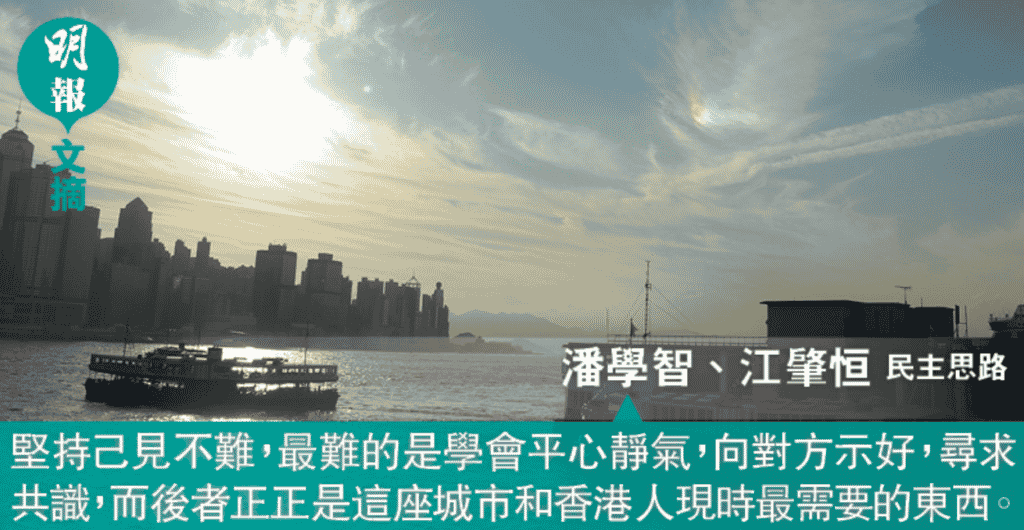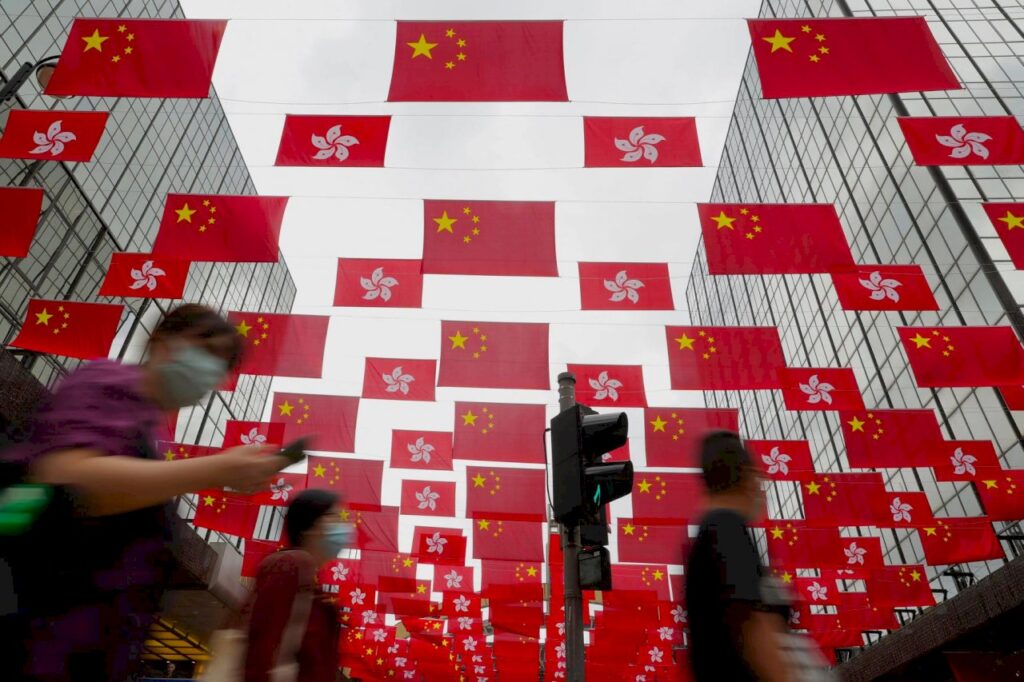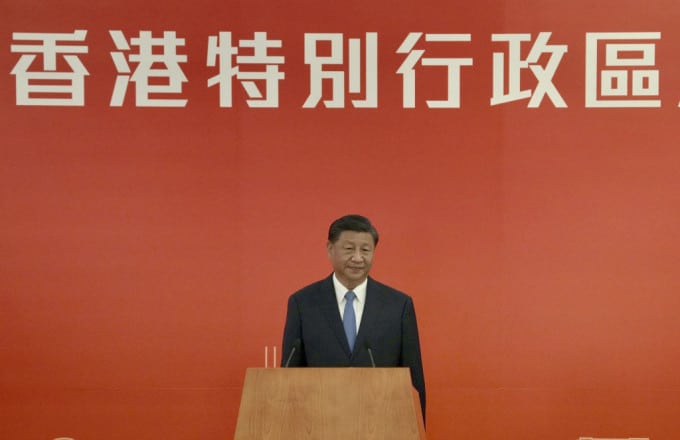Earlier, Carrie Lam mistakenly quoted a famous quote, causing the whole city to relive Mandela's life and deeds. South Africa implemented apartheid policies in the last century, and black people suffered discrimination. Mandela was imprisoned for 27 years for organizing armed resistance. After being released by the white president De Klerk, who was determined to eliminate racial discrimination, he switched to peaceful means and was elected president. He established the Truth and Reconciliation Commission (Truth Commission), which was led by people who adhered to the non-violent line. South African Archbishop Tutu led national reconciliation. The Truth Committee attempts to ease political conflicts and resolve social antagonisms. In recent years, examples include Canada facing up to its assimilation policy that harms indigenous peoples, and Indonesia also planning to reflect on the past of anti-Chinese massacres. This has some implications for Hong Kong's next step in the chaos.
After the end of the apartheid policy, South Africa established the Truth Commission in 1995 to deal with crimes committed under the extreme divisions of society in a more tolerant but still consistent with moral standards, and ultimately reached great reconciliation. The Truth Committee has investigative powers to conduct hearings. Victims who have been subjected to inhumane treatment are invited to tell their experiences. The perpetrators are also required to submit testimonies and can apply for amnesty, although very few are granted amnesty. It takes time for society to heal, and South Africa's experience shows that the TRC can help quell the unrest caused by the protest movement and allow negotiations to begin.
Revealing righteousness through restoration
The South African Truth Commission is a model of restorative justice, which focuses on establishing peace and advocates taking into account the background of social conflicts and the reconciliation of interpersonal relationships when dealing with criminal incidents. The practice of restorative justice must meet three requirements: (1) the offender is responsible for the fault; (2) the victim receives reasonable compensation; (3) conflicts are reconciled and the victim and offender are supported to reintegrate into society. Restoration conference is a dialogue platform that gives both parties involved the opportunity to find buffers, describe the psychological and life impact, and understand each other with empathy. While reflecting the rights and dignity of the victims, it also allows individuals, groups and communities to Relationships repair from damage.
This is not an unconditional compromise for reconciliation, because the search for the truth is still indispensable. Spain's fascist regime ruled for nearly 40 years and fell after the death of dictator Franco. The "Forgetting Agreement" agreed to restore social peace has been criticized for emphasizing reconciliation over the truth. Unlike the South African Truth Committee, the Spanish government passed an amnesty law in 1977, not to pursue the crimes committed during the Franco period, to release political prisoners, and to allow those who escaped to return home to avoid trial. The government and the people each made concessions for the future of the country, consigning the entire period to historical memory. Although it helped Spain transition to a democratic regime, it also allowed perpetrators of serious human rights violations to escape legal sanctions, causing secondary harm to the victims.
Relying solely on the trial process to restore the truth cannot heal the scars of the victims. The court has always played the role of practicing retributive justice, which has led many people to believe that traditional criminal justice principles can better demonstrate justice. Indeed, victims generally judge whether justice has been demonstrated by whether the offender receives the punishment he deserves. However, more and more reforms in judicial areas are improving existing criminal justice with restorative justice, demonstrating justice through rehabilitation, which is especially helpful for special groups such as juvenile offenders and victims of sexual violence. As early as 1985, the United Nations has paid attention to the rights of victims and formulated the "Declaration of Basic Principles of Justice for Victims of Crime and Abuse of Power" based on the concept of restorative justice, promoting the handling of cases with compassion and respect. In recent years, the International Criminal Court has also begun to balance retributive and restorative justice in its legal framework, embodying the spirit of the Rome Statute, healing traumatized societies, and preventing wars and crimes against humanity.
A dialogue mechanism without comprehensive introspection will keep the truth out of reach
Hong Kong has gone through a turbulent year. We have been unable to sort out the causes of social unrest, put forward suggestions that are consistent with social reality and public sentiment, and calm public anger without compromising the truth. The IPCC report, which has been prepared for a long time, has been released. It has no investigative power to examine the various accusations against the police. It is expected that it ultimately concluded that it was "unsubstantiated". For example, the bureau's decision-making process cannot be known during the 6.12 clearance, and the medical report of the girl with the big eye cannot be obtained during the 8.11 conflict. The report only serves to review procedures and regulations. I believe that all committee members have already known that it will be difficult to meet public expectations. The government is resolute in refusing to set up an independent commission of inquiry. However, the independent review commission, which has finalized its candidates at the beginning of the year, is on the verge of death. It is only willing to examine the divisions in society. Democratic ideas advocate the establishment of a Hong Kong truth commission with investigative powers and the power to recommend amnesty. It is true that the atmosphere of reconciliation has always been vague. Liang Meifen and Zhong Guobin moved to invoke the privilege law to investigate, but there was no guarantee that a public hearing chaired by members would not turn into an unconvincing political maneuver. Leung Kai-cheung proposed a private bill to establish an investigation committee, which will be discussed at the Legislative Council Security Affairs Committee meeting. However, it is difficult to find cross-party support amid the deadlock in the Legislative Council.
Although some of the facts of the case will be clarified in court trials, without a dialogue mechanism for comprehensive introspection and investigation of deficiencies, the truth people long for will be out of reach. The courts cannot repair the collapsed governance system, the rock-bottom police-community relationship, the total torn interpersonal relationships, and the miserable emotional health. More than 500 complaints against the police have been lodged by people directly affected. If found to be true, they will enter judicial proceedings. An internal investigation commissioned by the IPCC and conducted by University College London proved that public support for police actions is mixed in the eyes of colleagues. , reflecting that the police force is not monolithic. However, many unsolved cases that have attracted great attention from public opinion were not followed up because no one reported the case. One side said that they lost confidence in the police and therefore gave up the investigation, while the other side said that the online rumors were false. If this continues, the truth behind the "Xinwuling Torture", "The Soul of Prince Edward Station", Zhou Zile falling from a building, Chen Yanlin's floating corpse and other cases may disappear and become urban legends forever.
About 9,000 people were arrested in the storm over the amendment bill. Some were found guilty or acquitted in the riot cases. Other verdicts will follow. The judicial system is a long process. The appeal of the Mong Kok riot case four years ago was rejected until recently. The Occupy Central Nine Sons case about six years ago is also awaiting appeal. The trauma left by social conflicts will continue to haunt everyone through court news for years to come. At the end of the siege at PolyU, the principal and teachers picked up about 300 underage students. Just imagine what awaits these young people. I believe no one will not feel sorry for them. On the premise that the rule of law must not be compromised, amnesty, self-imposed behavior, or a police superintendent's warning may give both parties an opportunity for reconciliation. The standard can refer to the "Norgaard Principles" adopted in resolving the situation in Namibia, taking into account the following factors: (1) Motive for committing the crime; (2) Crime circumstances (whether the crime was committed individually and unorganized, or during an illegal assembly) ; (3) Political purpose (whether it is to fight for demands or to overthrow the government); (4) Whether the crime is related to the realization of political purposes.
We need truth and reconciliation
The turbulence that has occurred over the past year has caused indelible conflicts among society, families, and many Hong Kong people. We claim to be fighting for justice, conscience, and truth, but we lose more in the process. In the eloquence of the seven emotions, it is not difficult to stick to one's point of view. The most difficult thing is to learn to be calm, show kindness to the other party, and seek consensus. The latter is exactly what this city and Hong Kong people need most right now. The epidemic has brought about a cooling-off period. We sincerely call on all parties in society, including those in power and every citizen, to show the greatest responsibility and courage, temporarily put aside their anger and stance, work together to find the truth, try to reconcile, and let Hong Kong starts again and regains hope.
The author Pan Xuezhi is the co-convener (research) of Democratic Thoughts, and Jiang Zhaoheng is the director of Democratic Thoughts



